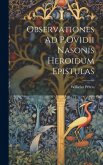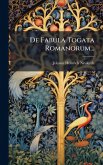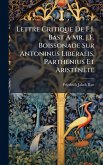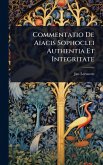Observationes CriticÃ] De Tragicorum GrÃ]corum Dialecto, written in Latin by Aarolus KÃ1/4hlstaedt and originally published in 1832, presents critical observations on the dialects used in Greek tragedies. This scholarly work delves into the nuances of language employed by ancient Greek tragedians, offering insights into their linguistic choices and the variations within the tragic genre. Addressed to students and scholars of classical literature and linguistics, this book provides valuable analyses of the grammatical structures and dialectical features present in these significant dramatic works. It remains relevant for those studying the intricacies of the Greek language and the historical development of its dialects. This work has been selected by scholars as being culturally important, and is part of the knowledge base of civilization as we know it. This work was reproduced from the original artifact, and remains as true to the original work as possible. Therefore, you will see the original copyright references, library stamps (as most of these works have been housed in our most important libraries around the world), and other notations in the work. This work is in the public domain in the United States of America, and possibly other nations. Within the United States, you may freely copy and distribute this work, as no entity (individual or corporate) has a copyright on the body of the work. As a reproduction of a historical artifact, this work may contain missing or blurred pages, poor pictures, errant marks, etc. Scholars believe, and we concur, that this work is important enough to be preserved, reproduced, and made generally available to the public. We appreciate your support of the preservation process, and thank you for being an important part of keeping this knowledge alive and relevant.
Bitte wählen Sie Ihr Anliegen aus.
Rechnungen
Retourenschein anfordern
Bestellstatus
Storno

![Observationes CriticÃ] De Tragicorum GrÃ]corum Dialecto - Kã1/4hlstaedt, Aarolus Observationes CriticÃ] De Tragicorum GrÃ]corum Dialecto - Kã1/4hlstaedt, Aarolus](https://bilder.buecher.de/produkte/74/74861/74861556n.jpg)






